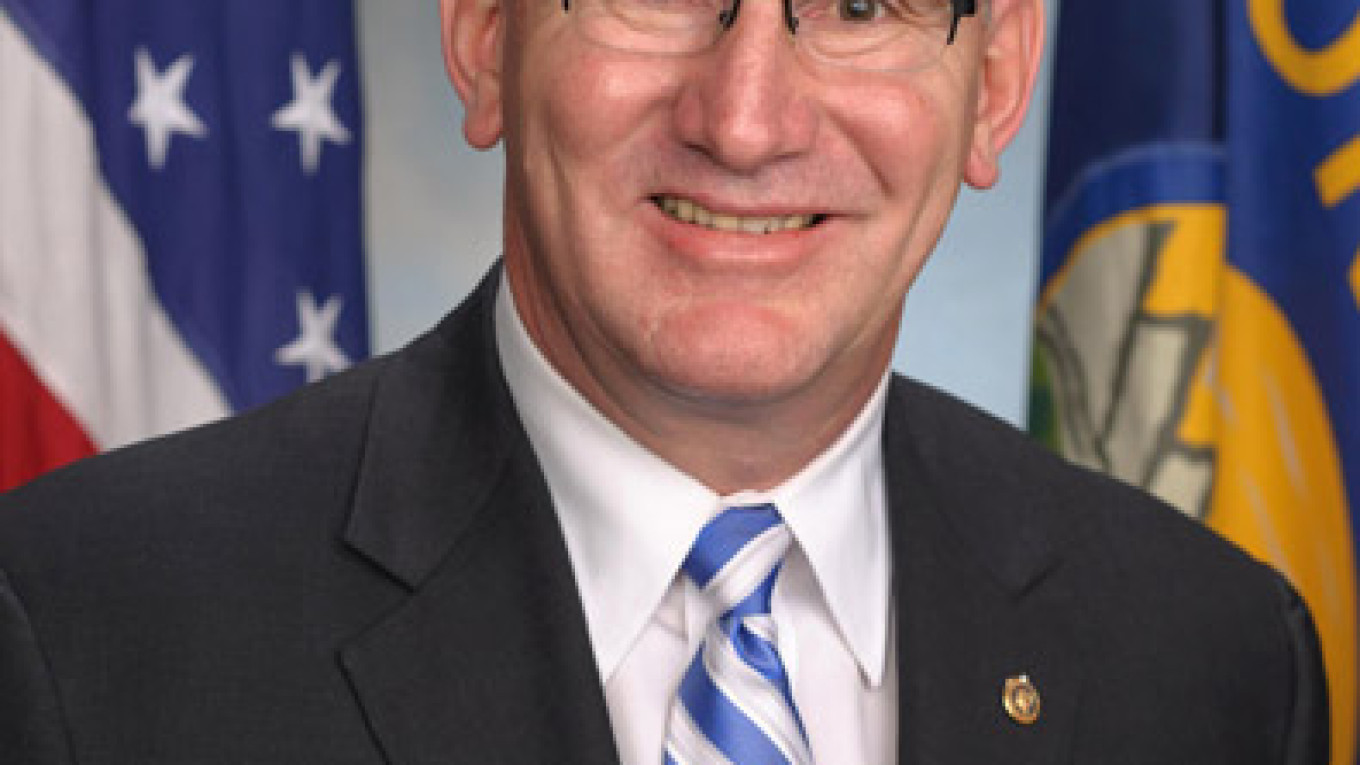It is no easy task to get elected to the U.S. Senate, the upper chamber of Congress. It remains an unattainable dream for most U.S. politicians, and those who do get in generally consider it the greatest achievement of their lives. Aspiring senators must give hundreds of speeches, shake hands with tens of thousands of people, collect donations from hundreds of thousands of people and clinch ever more challenging electoral victories — from senior class president on up.
It is not unusual for senators to have spent decades rising to their current posts. Most senators are career politicians, but even the few who come to the job from business or the military also view their senatorial post as the crowning point of their long careers.
U.S. Senator John Walsh of Montana had planned to represent the Democratic Party in elections this November.
Walsh previously served in the military for 30 years, rising from the rank of private to brigadier general in the National Guard and to colonel in the Army. He also commanded a large force during U.S. military operations in Iraq.
One year ago, Walsh was appointed senator to replace the incumbent Democrat who was retiring in a bid to increase his visibility among voters and help Democrats retain that Senate seat in November.
But after actively campaigning for six months, Walsh dropped out of the race in August. That decision dealt a death blow to Walsh's political career, all but ensured that Democrats would lose that seat to a Republican and could prove the deciding factor that would give the Republicans majority control of the Senate.
Walsh had to withdraw his candidacy because it was discovered that he had plagiarized eight pages of a 14-page research paper while studying at the Army War College in Pennsylvania. It took the college three months to sort out the situation before announcing on Oct. 10 that it was revoking his degree and removing his name from the list of the 2007 graduating class.
That is America. In Russia, dozens of State Duma deputies have been found guilty of plagiarism or fraud in defending their college dissertations, but not one has resigned or given up power. The universities and institutes that approved those fraudulent thesis papers have not revoked a single paper or degree.
With much difficulty, the State Commission for Academic Degrees and Titles has begun disbanding dissertation councils guilty of fraudulent practices and expelling members of its expert panels implicated in falsified rulings.
But have any universities fired even a single one of those so-called "scientists and scholars?" Have they published the results of their internal investigations?
And does anyone but a small group of activists contend that this problem is extremely serious — potentially more serious than the funding shortages universities face?
Perhaps this is why the U.S. is considered a developed country and Russia only a developing one. It is not because the U.S. gross domestic product is three times higher than Russia's or because that country spends 10 times more on science and education.
Maybe it is because the American people respect education, science and the property of others — and respect themselves enough to make sure that their representatives in parliament are not plagiarists and cheaters.
Konstantin Sonin, a columnist for Vedomosti, is professor of economics and vice rector at the Higher School of Economics in Moscow.
A Message from The Moscow Times:
Dear readers,
We are facing unprecedented challenges. Russia's Prosecutor General's Office has designated The Moscow Times as an "undesirable" organization, criminalizing our work and putting our staff at risk of prosecution. This follows our earlier unjust labeling as a "foreign agent."
These actions are direct attempts to silence independent journalism in Russia. The authorities claim our work "discredits the decisions of the Russian leadership." We see things differently: we strive to provide accurate, unbiased reporting on Russia.
We, the journalists of The Moscow Times, refuse to be silenced. But to continue our work, we need your help.
Your support, no matter how small, makes a world of difference. If you can, please support us monthly starting from just $2. It's quick to set up, and every contribution makes a significant impact.
By supporting The Moscow Times, you're defending open, independent journalism in the face of repression. Thank you for standing with us.
Remind me later.


